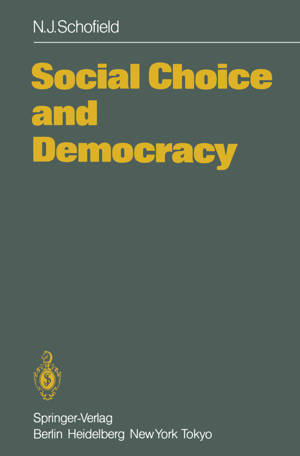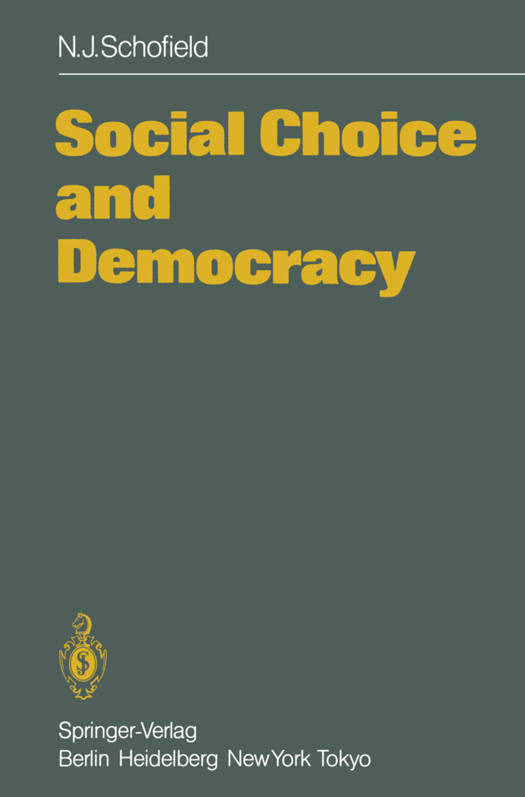
- Afhalen na 1 uur in een winkel met voorraad
- Gratis thuislevering in België vanaf € 30
- Ruim aanbod met 7 miljoen producten
- Afhalen na 1 uur in een winkel met voorraad
- Gratis thuislevering in België vanaf € 30
- Ruim aanbod met 7 miljoen producten
Zoeken
Omschrijving
The mathematical theory of voting has intellectual roots extending back two centuries to the writings of Borda and Condorcet. Yet it has only been in the last forty years that general theorems have begun to emerge. With the publication of this volume, Norman Schofield brings the results together in a, common framework. SOCIAL CHOICE AND DEMOCRACY, however, is not merely a synthetic exercise, for Schofield's own work over the last decade has constituted a major initiative in deepening and' broadening our general understanding of voting arrangements. At last the results of his research, bits and pieces of which have been reported in a number of journals of international standing and in various collections, are coherently and systematically presented as an entirety. For students of democracy -- chiefly philosophers and political scientists, but increasingly economists as well -- the insights of this volume are profound. From it I infer the following.
Specificaties
Betrokkenen
- Auteur(s):
- Uitgeverij:
Inhoud
- Aantal bladzijden:
- 326
- Taal:
- Engels
Eigenschappen
- Productcode (EAN):
- 9783642705984
- Verschijningsdatum:
- 6/12/2011
- Uitvoering:
- Paperback
- Formaat:
- Trade paperback (VS)
- Afmetingen:
- 156 mm x 234 mm
- Gewicht:
- 480 g

Alleen bij Standaard Boekhandel
+ 211 punten op je klantenkaart van Standaard Boekhandel
Beoordelingen
We publiceren alleen reviews die voldoen aan de voorwaarden voor reviews. Bekijk onze voorwaarden voor reviews.







